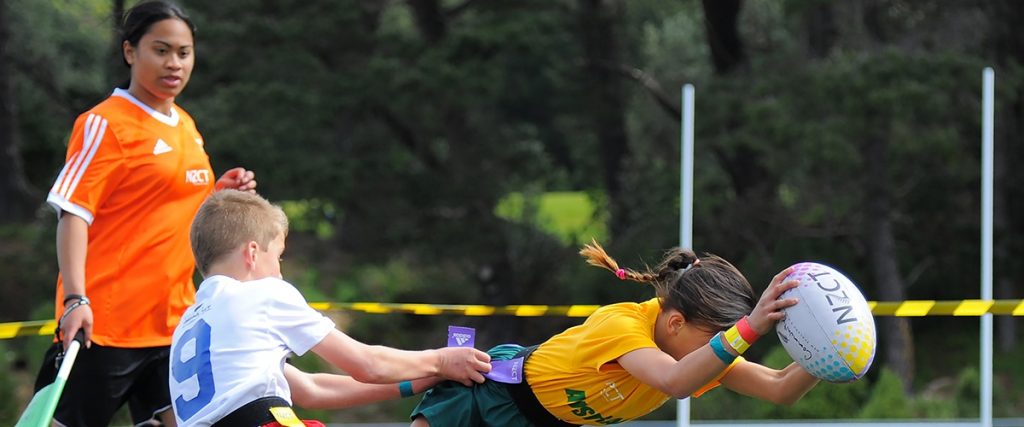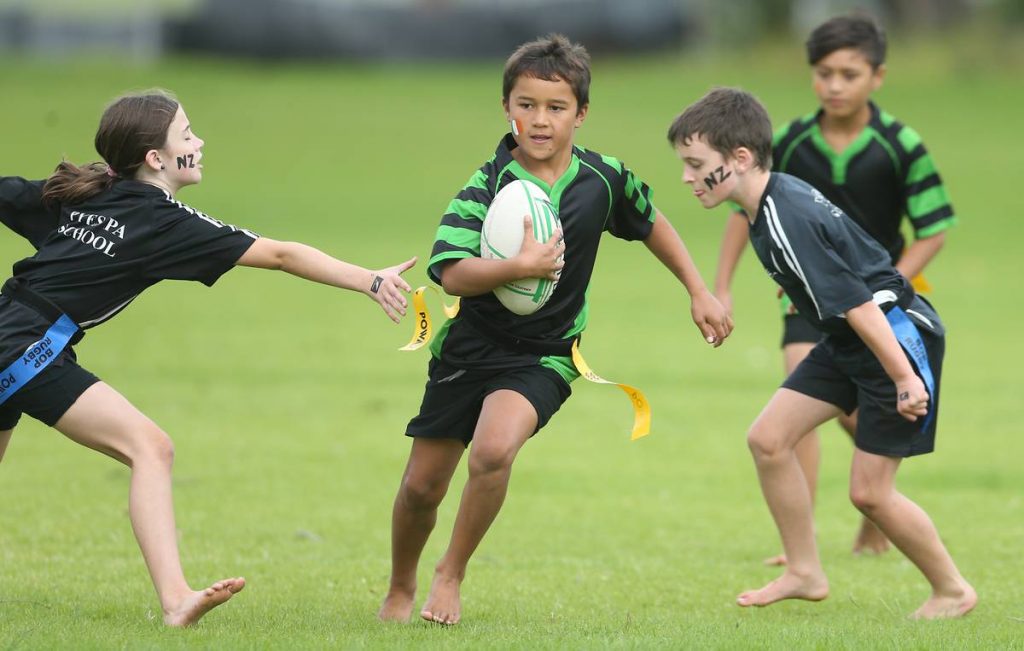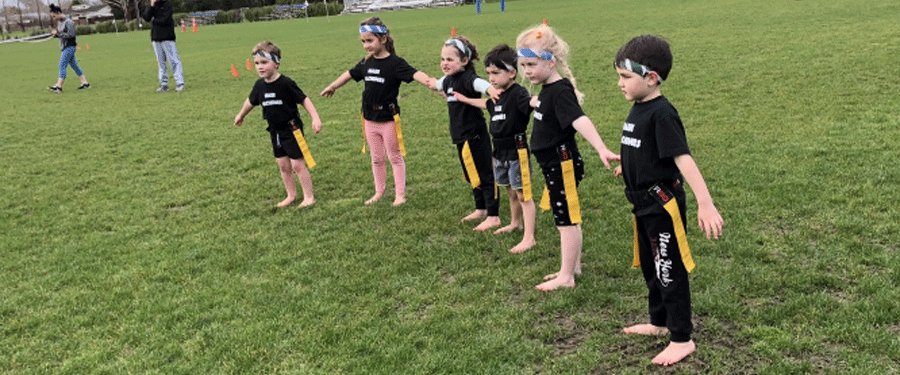Coaching Rippa Rugby

Coaching rippa rugby is a rewarding and worthwhile experience. For most children you will be their first coach, and will hopefully inspire them to have a life-long love of the game of rugby and playing together with a team.
Whether you are a first-time rippa coach and are not sure where to even begin, or a seasoned veteran, there are some key points to keep it mind as you prepare for the rippa season.
What is Rippa Rugby?
“Rippa rugby” was established by the New Zealand Rugby Union in 2003 as a pathway to develop younger rugby players skills and passion for rugby union.
It is considered a non-contact form of rugby and is becoming increasingly popular among boys and girls between the ages of 5 and 15.
Rippa is similar to tag and touch rugby. An essential difference between rippa and tag rugby is that with tag, a player with the ball can grubber kick at anytime and the ball can touch the ground if knocked back. The main difference between rippa and touch rugby is that with touch, the defender touches the player with the ball, rather than rip a tag off the ball carriers belt.
The goals of Rippa Rugby

The primary goal of rippa rugby is to foster player engagement by providing an easy pathway into playing rugby. The secondary goal of rippa is to score a try by grounding the ball behind or on your opponents’ try line.
There is no goal kicking in rippa and a try is worth five points.
Per the picture above, defenders must rip one of two flags from the belt of the ball carrier. This encourages excellent rugby related skills such as:
- teaching players from a young age to pass the ball to a team mate before being “ripped”
- how to evade a defender when you have the ball
- how to track the ball carriers hips when making a rip
Six rips against the attacking team with the ball results in the ball being turned over to the defending team.
Click the following link to read a more detailed version of the rules of rippa rugby.
Women Rippa Coaching
There are some very successful women rippa and rugby coaches. If you are a woman and considering coaching rippa do not let the idea of rugby coaching being male-dominated put you off.
Women can be more effective than their male counterparts at coaching rippa because they are generally more nurturing with younger children and more likely to focus on enjoyment and engagement than playing to win!
Coaching rippa is also a good pathway to coaching women’s rugby.
Rippa Coaching Tips
The most pleasing part of being a coach is to see the kids you coached in rippa playing rugby as an adult. It means you’ve achieved your main goal as a coach – to drive player engagement and their passion for playing a team sport.
The following tips may help drive player engagement:
- Set your coaching goals for the season, but be realistic. Firstly, do not consider winning as a goal, especially when coaching the junior grades. Ultimately your goal is to teach your players foundation skills for playing rugby. Your goals should center on technical skills (e.g. passing, ripping) and team engagement (e.g. the number of players that return the following year). Then assess your progress as a coach against these goals. But ensure your goals are realistic for that age group.
- Play-coach-play. Burn some energy with a fun drill to start the session. Then do some coaching related to that drill and end with the same fun session. Show the players how they’ve improved in the final session.
- Player-to-player feedback. For example, split your players into groups when coaching a particular skill (e.g. tracking the hips when making a rip). Run the session for a few minutes then ask the groups to peer review a group you think are doing well. This is a powerful way to get young players to learn from each other. It is also a visual way of learning, which is key with younger players.
- Get rid of the cones. We see this too often, the kids perform magically when in a coned drill scenario then struggle when things become random during a game. Teach them early on to embrace the grey, to think for themselves and to problem solve.
- Split out players that wind each other up. This sounds a bit draconian, though it’s important kids at a young age learn to not disrupt their friends from learning. Partnering the more energetic kids with kids that are more settled helps.
- Ask parents to help out. Kids love it when you become involved. Having parents join in also allows them to appreciate how tough it can be to coach.
- Try not to do fitness drills that are repetitive and boring. Come up with smart, fun ways to get the players fitter.
Have a plan
Your goal as a rippa rugby coach is to engage kids and parents so that they want to come back and play again the following year. You can do this by developing a few core skills and most importantly by having fun.
Be prepared and be organised. Have a basic plan for each session, and try to be at practice and games a few minutes early to set up so that kids arrive and can get started straight away.
But be flexible with your plan, especially with younger kids.
Keep it simple
One of the most important things to keep in mind when coaching younger players is to keep it simple.
Rippa is not a complex game to play or learn and your training sessions should be simple and easy to follow. Research has shown that most young children struggle to integrate complex training drills into their actual game play.
Focus on one or two basic skills each session, and keep in mind you are dealing with kids – have a sense of humor and be prepared to throw your lesson plan away on occasion and spend the entire practice having fun.
Clear communication
Have clear lines of communication with parents regarding your coaching principles and what you expect from them and their children. Unless you are someone who welcomes a lot of parent feedback, which most coaches do not, be clear from the beginning that you are a volunteer and still learning but would like to do things your way and would appreciate the space to do that.
Know the rules
Each union and club has their own variations to rippa rugby rules and game formats, make sure you understand these fully before your first practice – parents are less likely to question your ability as a coach if you are organised, prepared and know the rules. bear in mind, the rules are also there to protect your players and to provide a framework within which to enjoy the game.
Focus on the kids, not the score line

There will be occasions when you are frustrated with your team, or the parents, or the other coaches in your league. When this happens, keep your focus on the kids – are they enjoying the game, and are they making some progress, even if it is only in small degrees.
